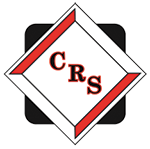Healthcare is evolving, with technology playing a crucial role in transforming the industry. One such innovation is remote data abstraction services, which streamline the collection and analysis of clinical data. As today’s healthcare providers want efficiency and accuracy, the choice of the right data abstraction service becomes essential. Let’s delve into what makes an ideal service and how to navigate the selection process effectively.
How An Ideal Data Abstraction Service Should Be?
Seamless Integration: An ideal service seamlessly integrates with existing systems, allowing healthcare professionals to transition smoothly without disruptions. This integration enhances productivity and efficiency by complementing the existing infrastructure.
Data Security and Compliance: Prioritizing data security and compliance, the service enforces strong measures to safeguard patient information and adhere to regulations such as HIPAA. This instills trust and confidence in patients and healthcare providers alike.
Scalability: With flexible scalability, the service can adapt to changing organizational needs and accommodate growth seamlessly. This ensures that performance remains optimal even during periods of expansion, supporting the scalability requirements of healthcare organizations.
Timeliness and Accuracy: The service provides real-time data access and precise abstraction methods, ensuring timely and accurate information for clinical decision-making. This commitment to accuracy enhances patient care quality and supports evidence-based practices in healthcare organizations.
How to Choose the Right Data Abstraction Services?
- Define Your Requirements: Begin by evaluating your organization’s unique requirements, encompassing the volume and complexity of data to be abstracted, as well as integration needs with existing systems. This assessment will aid in narrowing down options and selecting a service provider aligned with your organization’s goals and objectives.
- Evaluate Expertise: Look for providers with a proven track record in healthcare remote data abstraction supported by experienced professionals. Examine the provider’s track record, client feedback, and case studies to assess their proficiency and reliability in delivering precise and punctual abstraction services.
- Technology Infrastructure: Ensure that the service provider utilizes advanced technologies for data extraction, analysis, and reporting. A robust technology infrastructure enhances efficiency, accuracy, and scalability, enabling seamless data abstraction processes that meet the demands of modern healthcare organizations.
- Compliance and Security: Verify that the provider follows the stringent data protection standards and complies with regulations such as HIPAA. Data security is vital in healthcare, and opting for a provider with solid security measures guarantees the confidentiality and integrity of patient information, reducing the risk of breaches or data loss.
- Adaptability and Scalability: Select a service that can accommodate growth and adapt to changing requirements without significant disruptions. Scalability and flexibility are essential as healthcare organizations evolve and expand, ensuring that the abstraction service can scale easily to meet increasing data volumes and organizational needs.
- Cost-Effectiveness: Balance the quality of service with affordability, considering long-term benefits and return on investment. While cost is an essential factor, prioritize value over price alone, considering factors such as accuracy, reliability, and customer support. A cost-effective solution should deliver high-quality abstraction services that contribute to improved patient outcomes and organizational efficiency in the long run.
Why is it Important to Choose the Right Data Abstraction Services?
- Impact on Healthcare Delivery: Your choice of data abstraction service affects patient care, operational efficiency, and adherence to regulations. It plays an important part in ensuring that healthcare services are delivered effectively and in compliance with industry standards.
- Enhanced Decision-Making: A reliable service that empowers healthcare professionals with accurate and timely insights from clinical data. This enables them to make informed decisions for patient treatment and management, improving overall care quality.
- Promotion of Interoperability: Opting for the right service facilitates seamless communication and collaboration among healthcare stakeholders. Improved interoperability leads to better care coordination and, ultimately, enhanced patient outcomes.
- Optimization of Resource Utilization: Selecting a suitable data abstraction service helps organizations make efficient use of personnel, time, and technology resources. This maximizes productivity and cost-effectiveness, allowing healthcare providers to focus on delivering high-quality care.
- Improvement of Patient Experience: Ultimately, the right remote data abstraction service contributes to a positive patient experience. It ensures that care delivery is evidence-based, personalized, and aligned with patient needs and preferences, enhancing overall satisfaction.
Challenges Occur in Clinical Data Abstraction
Despite the benefits, clinical data abstraction poses several challenges for healthcare providers. These include:
- Data Complexity: Clinical data’s intricate details and diverse formats pose challenges for abstraction and interpretation. Extracting meaningful insights requires a deep understanding of medical terminology and coding systems.
- Resource Constraints: Limited manpower and expertise hinder efficient data abstraction, leading to delays and inaccuracies. Competing priorities and workload pressures exacerbate these constraints.
- Technology Integration: Integrating remote data abstraction solutions with existing IT infrastructure faces compatibility issues. Ensuring interoperability between different systems requires careful planning and technical expertise.
- Quality Assurance: Maintaining data accuracy and consistency is crucial but challenging. Robust quality assurance measures and continuous monitoring are necessary to identify and rectify inaccuracies promptly.
- Regulatory Compliance: Adhering to regulations like HIPAA adds complexity. Organizations must ensure patient information is adequately protected, requiring appropriate security measures and compliance standards.
- Interoperability Challenges: Achieving seamless data exchange between disparate systems is vital but challenging. Overcoming interoperability issues requires standardized data formats and exchange protocols to facilitate communication across healthcare settings.
Things to Keep in Mind to Avoid Challenges-
To overcome these challenges, healthcare organizations should:
- Invest in Training: Provide comprehensive training to staff involved in data abstraction to enhance their skills and proficiency.
- Leverage Automation: Embrace automation tools and software to streamline remote data abstraction processes and minimize manual errors.
- Regular Audits: Perform routine audits and quality assessments to uphold standards and pinpoint areas for enhancement.
- Collaborative Approach: Foster collaboration between clinical and IT teams to address integration issues and optimize workflow efficiency.
- Stay Updated: Keep abreast of industry current and regulatory shifts to adjust data abstraction strategies proactively.
Conclusion
Choosing the right remote data abstraction service is crucial for modernizing healthcare delivery. By focusing on accuracy, security, and scalability, organizations can use data to make better decisions and improve patient outcomes. Despite challenges, careful planning and proactive measures can overcome obstacles, ensuring efficient and effective data abstraction. By investing in quality assurance and compliance, healthcare providers can protect patient information and enhance collaboration across the healthcare system. This paves the way for a more streamlined and innovative approach to healthcare.
For dependable and precise data abstraction services, Cardiac Registry Support is worth exploring. With professionalism, we provide reliable and quality outcomes.



